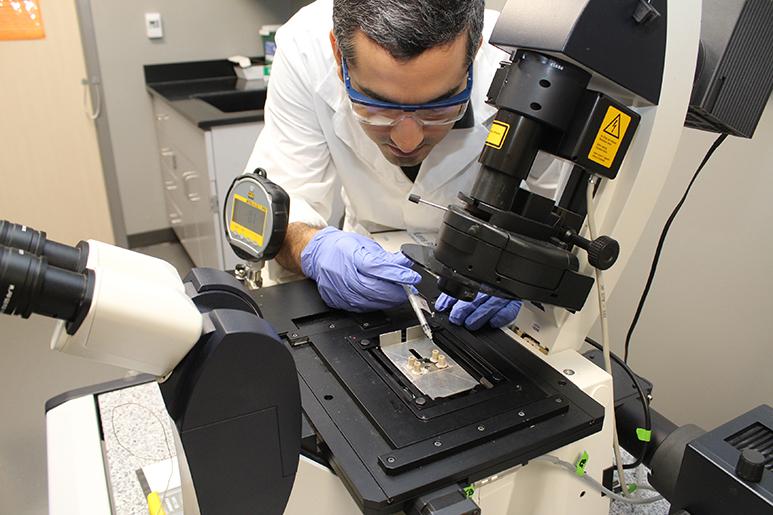
The Crisman Institute for Petroleum Research, a center within the Texas A&M Engineering Experiment Station, is under new leadership. Dr. Jeff Spath, the new department head of the Harold Vance Department of Petroleum Engineering at Texas A&M University, has taken on the role of director for the institute.
“We’re committed to keeping the department at the forefront of petroleum engineering education, and research and development,” said Spath. “Crisman is a valuable tool that improves both, while increasing our industry relations. Industry-defined problems brought to the institute are used to generate specific research proposals developed by faculty. Graduate students conduct the research, under industry mentoring and faculty supervision, to provide answers for industry. The resulting knowledge is implemented into new industry practices and into the department curriculum and classrooms.”
The institute was initially established in 1984 by a private donor endowment from Wayne and Ruby Crisman to further research efforts within the petroleum engineering department. In 2004, Dr. Stephen A. Holditch became the director and invigorated the program. Backed by endowed funding from Schlumberger, Halliburton and Chevron, the institute was opened to other companies through membership. In 2016, Holditch came back from retirement to spearhead efforts for the institute to merge research endeavors with the Berg-Hughes Center (BHC) for Petroleum and Sedimentary Systems, a part of the Department of Geology and Geophysics within the College of Geosciences at Texas A&M.
“By combining Crisman and the BHC faculty and graduate students, we have the integrated team we need for solving the complex problems associated with developing shale reservoirs,” said Holditch at the time of the merger. “We need to improve the fundamental science in our geologic, hydraulic fracturing, and reservoir models so they can be used to both match the production history and predict the future production performance more accurately than we can now.”
There is no shortage of problems to be solved by the institute, particularly in shale reservoirs. Their challenging geology and production issues require a combination of petroleum engineering fundamentals, innovative techniques and creative thinking, something Spath knows the institute can provide.
“This industry-driven approach is vital in maintaining the department’s relevance and provides the department opportunities to increase visibility and reputation through cooperative research,” said Spath. “The institute also provides real, current problems to the graduate students, thereby strengthening their overall education. As a final but very important advantage, many of our graduates end up going to work with the sponsoring companies.”